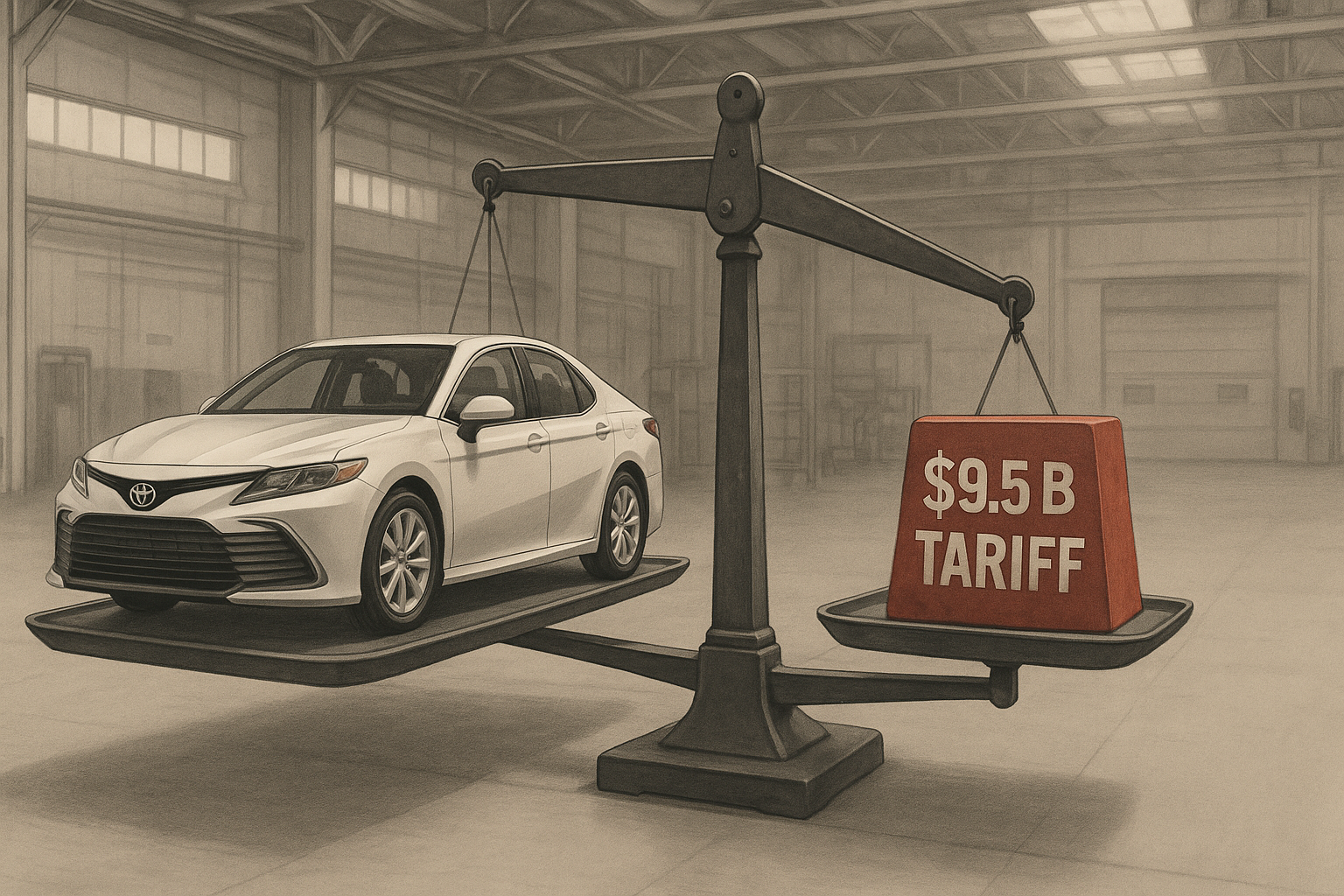Toyota dropped what you might call a financial bombshell yesterday—though "bombshell" feels almost quaint for a $9.5 billion hit to profits. The Japanese automaker warned investors that tariffs will carve this massive chunk from their bottom line, transforming abstract trade policy debates into something painfully concrete.
I've covered automotive financials for years, and this number stopped me cold. $9.5 billion isn't just big—it's transformative.
Trade wars always follow this predictable-yet-somehow-surprising trajectory, don't they? First comes the tough talk from politicians. Then policy papers. Then actual regulations. And finally—wham!—the impact hits corporate balance sheets like a sledgehammer to the hood of a Corolla.
The scale here is what's truly jaw-dropping. We're talking about a sum roughly equivalent to Toyota's entire annual R&D budget. Think about that. An amount the company would normally invest in future technologies and innovation... just... gone. Poof. Redirected to government coffers because of political chess moves half a world away.
Toyota built its empire on a manufacturing system that assumes reasonably free movement of parts across borders. Their legendary just-in-time production method (still studied in business schools everywhere) wasn't exactly designed with "sudden massive tariff shocks" as a key variable in the equation.
Look, I doubt Toyota's finance team included "geopolitical meltdown" in their 2024 projections. Yet here we are.
The auto industry exists in this weird liminal space—companies are simultaneously global and intensely local. Toyota may be quintessentially Japanese, but walk through their Georgetown, Kentucky plant (which I did back in 2019) and you'll find thousands of American workers building Camrys with parts sourced from three continents.
A modern car isn't just a vehicle; it's globalization made manifest. Which is precisely why it becomes the punching bag when that globalization faces political resistance.
There's this phenomenon I've started calling the Visibility-to-Pain ratio in trade policies. Tariffs create splashy headlines and political talking points while distributing the actual cost so widely that individual consumers barely notice paying an extra grand or two per vehicle. But when those costs suddenly appear as a $9.5 billion line item on a corporate statement? Can't miss it.
(And yes, eventually those costs find their way to consumers anyway—but that's a story for another day.)
The timing couldn't be worse for Toyota. They've been pouring money into their belated electric vehicle push—a capital-intensive transition that requires... you guessed it... substantial profits to fund. Anything taking a $9.5 billion bite out of those profits potentially slows that transition, which ironically undermines the environmental goals many tariff-imposing governments claim to support.
For investors watching this unfold, Toyota's warning is the canary in the automotive coal mine. If Toyota—with its legendary operational discipline and scale advantages—is taking this kind of hit, what's happening at smaller manufacturers with less favorable cost structures? We might be witnessing the opening act of an industry-wide margin compression drama that'll play out through 2024 and beyond.
This raises bigger questions about supply chain resilience in our fragmenting world. The auto industry spent decades optimizing for efficiency, assuming trade barriers would continue falling. That bet doesn't look so smart anymore, does it?
And reconfiguring global supply networks isn't something you do overnight. These manufacturing ecosystems took decades to build and have massive inertia. You can't just pick up a factory and move it because some tariff schedule changed last Tuesday.
What's Toyota's next move? Probably what Toyota always does—methodically analyzing the problem, identifying inefficiencies, and adapting with their characteristic thoroughness. But even the vaunted Toyota Production System can't make tariffs vanish.
For the rest of us, this $9.5 billion warning serves as a useful reminder that trade wars aren't academic exercises or mere political talking points. They eventually translate into real money affecting real companies making real products that you and I buy.
Sometimes the complex world of global economics really is that simple.
